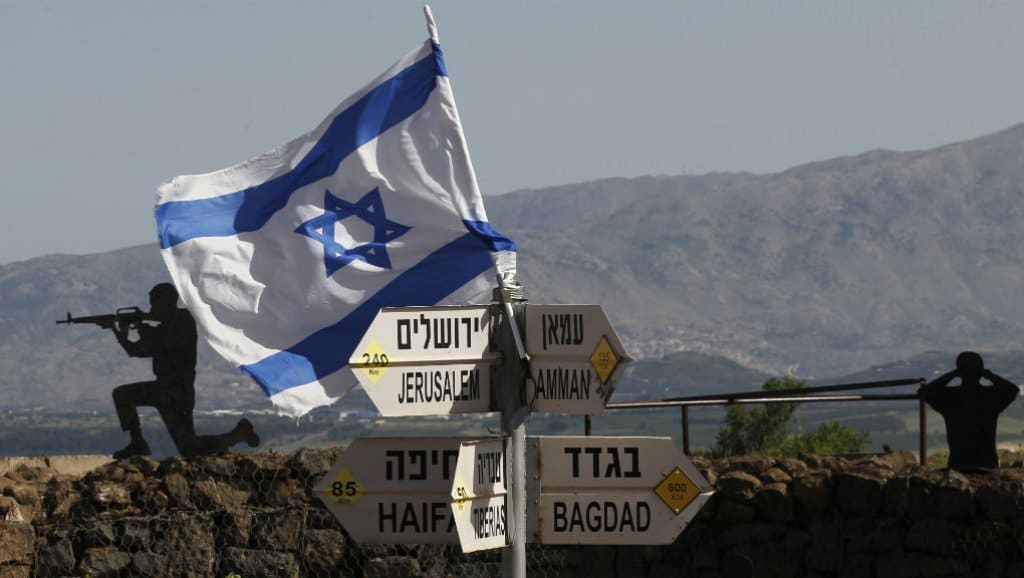
President of United States Donald Trump has announced to recognize occupied Golan heights as Israeli territory, which it captured from Syria in 1967 war.
In a tweet he justified the statement citing “critical strategic” and “regional stability” reasons favoring its all-weather ally Israel.
PM Benjamin Netanyahu was long speculated for being pressing for this move from US.
Golan heights lies about 60 kilometer south of Syrian capital of Damascus with an area over 1,200 square kilometer with a 70-km long demilitarized zone guarded by United Nations Observer Force.
Netanyahu quickly tweeted his appreciation to Trump on the issue, who is scheduled to meet Trump next week in United States.
A bill passed in Israeli parliament in 1981 to recognize the plateau as Israeli territory, was widely condemned internationally. Even former President Barack Obama voted against a resolution in United Nations citing violation of UN laws which doesn’t recognizes any territory captured through war.
The stand of Trump administration is no new taking into account the 2017 decision to recognize Jerusalem as capital from earlier Tel Aviv challenging the status quo and policies by previous administration. It was widely condemned by United Nations and Palestinians. Within few days a delegation led by first-daughter Ivanka Trump inaugurated new US embassy office in disputed Jerusalem city.
The move is in backdrop of US Secretary of State Mike Pompeo’s visit to Israel and also seen as a last-minute poll gimmick for supporting Israeli Prime Minister Benjamin Netanyahu in general elections for another term in the office who has faced grave corruption charges recently.
A rare shift of policy in recent state department reports highlight description of Gaza and West Bank as “Israeli-controlled” and not “Israeli-occupied” as earlier known and internationally accepted designations.
Golan heights has around 30 Israeli settlements with over 20,000 people living with few Druze Muslim Arabs who didn’t escape the annexation of provinces from Syria.
